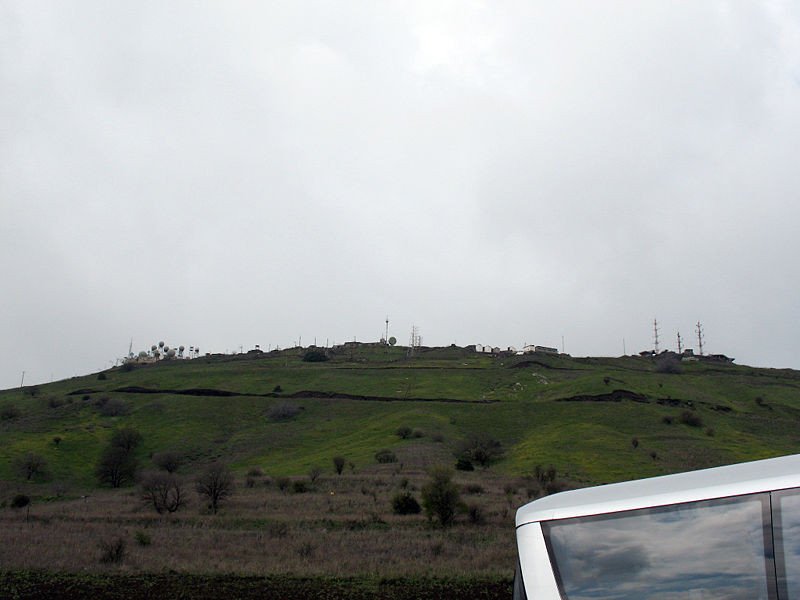TEL AVIV, Israel, May 11 (UPI) -- Amid mounting tensions in the Middle East, Israel's outgoing internal security chief, Yuval Diskin, says the Jewish state has been the target of attempted cyberattacks on key state infrastructure.
The attacker's identity was not disclosed, if indeed it is known. But the apparently unsuccessful attempts may have been retaliation by Iran for recent cyberattacks, blamed on Israel, on Tehran's contentious nuclear program.
In March 2010 the head of Israel's Military Intelligence, Maj. Gen. Amos Yadlin, disclosed that the Jewish state had become a world leader in cyberwarfare.
It was not clear why Yadlin, who headed one of the most secretive branches of Israel's military, would lift the veil on such a sensitive issue.
But it was widely seen as a warning to Israel's foes that it had the means to paralyze their infrastructure, such as electricity grids, water, transportation and financial systems and military command networks.
On April 25 Gholam Reza Jalali, head of an Iranian military unit tasked with countering sabotage, said the Islamic Republic had been hit by an "espionage virus" he called "Stars."
He didn't say what facilities or computer systems the virus had targeted or when it was detected. But it was the second known major computer worm to have hit Iran in eight months.
In September 2010 Iran disclosed that a malicious computer virus called Stuxnet had attacked high-value industrial sites.
It also appeared to be aimed at shutting down the Russian-built nuclear plant at Bushehr on the northern coast of the Persian Gulf.
Tehran admitted that a number of centrifuges at its main uranium enrichment center at Natanz, the core of its alleged nuclear military program, had been affected.
Computer experts generally agreed the mysterious Stuxnet virus -- one of the most sophisticated malware systems ever detected -- could only have been put together by the intelligence service of a state or combination of states.
On April 16 Jalali, who heads an outfit called Passive Defense, blamed Israel and the United States, the main opponents of Iran's nuclear program.
Diskin, who retires at the end of May, told Israeli military correspondents the General Security Service, universally known as Shin Bet after its Hebrew initials, had detected "fingerprints and tracks" of the attempted attacks on Israeli targets.
He gave no clue of the intended targets but disclosed that Shin Bet has formulated a multiyear plan to upgrade and expand its cyberwarfare capabilities under his successor, Yoram Cohen, his former deputy.
"Israel needs to grow in this field since this is something that's already happening today -- and it's not waiting for tomorrow," Diskin declared. "This is a threat that's already knocking on our door."
Israel's Military Intelligence recently established a special division of its super-secret signal intelligence and code-breaking group, Unit 8200, to take responsibility for all cyberwar capabilities.
These are believed to be among the most advanced in the world. In 2008 Technolytics Institute, a private U.S. consultancy, rated Israel the sixth-biggest "cyberwar threat" after China, Russia, Iran, France and "extremist/terrorist groups."
The Jerusalem Post said May 5 that Unit 8200 was suspected of developing the Stuxnet worm.
These developments have put the spotlight on Unit 8200, which in military publications is known as the Central Collection Unit of the army's Intelligence Corps.
For all the secrecy that shrouds it, Unit 8200 is one of the largest units in the military, with several thousand personnel. It is commanded by a brigadier general whose identity is classified.
The unit's functions are comparable to those of the U.S. National Security Agency or Britain's Government Communications Headquarters.
Its main intelligence-gathering installation is the Urim base in the Negev Desert.
Despite Diskin's disclosures, little is known about Israel's cyberwarfare capabilities.
But Yadlin's comments a year ago shone some light on Israel's efforts. Cyberwarfare, he allowed, "fits well with the state of Israel's defense doctrine."
Two pillars of that doctrine are the pre-emptive strike and wherever possible ensuring combat takes place in enemy territory rather than on Israeli soil.
"Cyberspace grants small countries and individuals a power that was heretofore the preserve of great states," Yadlin said.
"Fighting in the cyber dimension is as significant as the introduction of fighting in the aerial dimension in the early 20th century."





